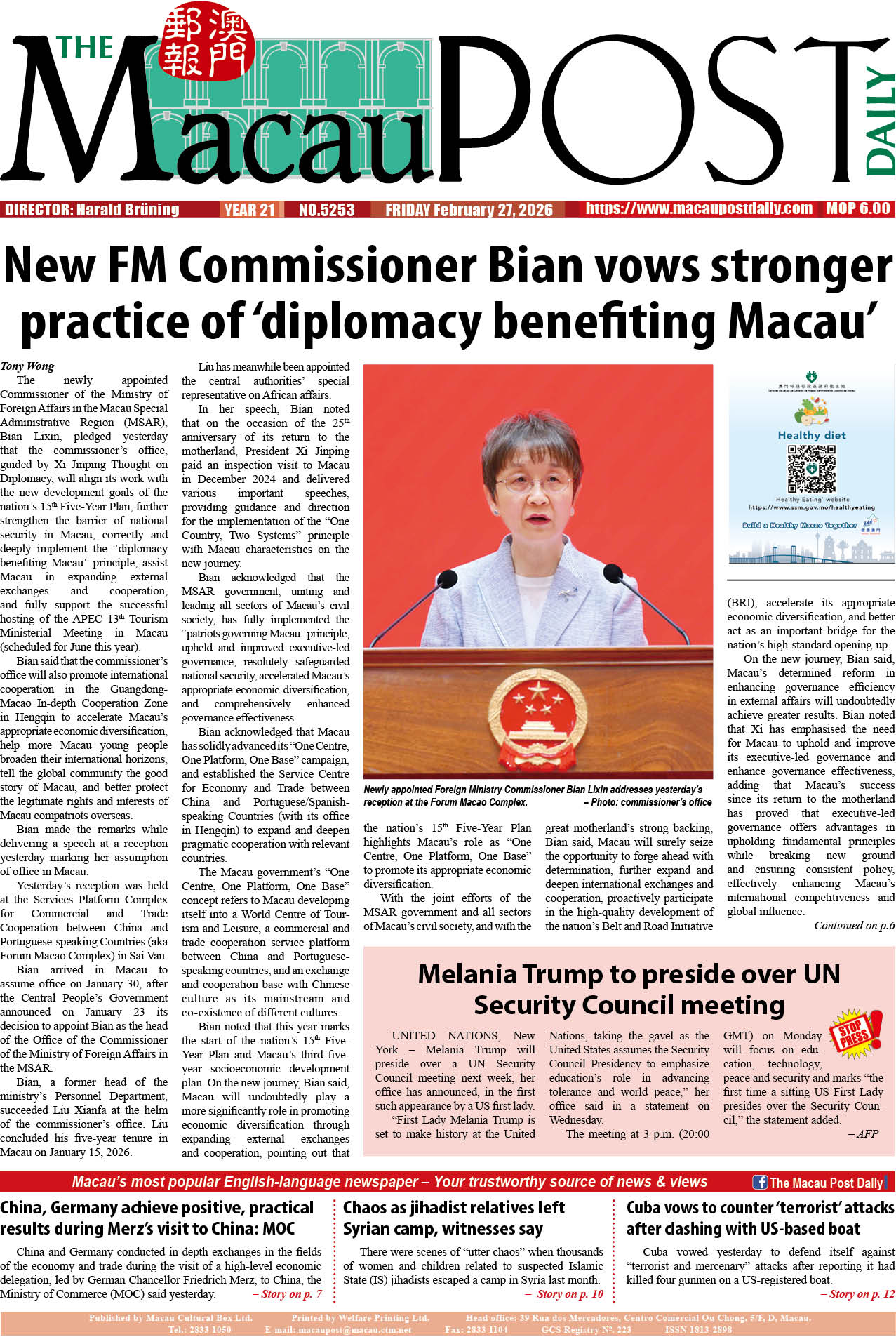The mastermind of a continuing education subsidy scam who cheated the government out of 741,706 patacas between 2014 and 2019, was sentenced to four years behind bars, the Court of Final Appeal (TUI) said in a recent statement.
According to the statement, the mastermind, referred to as A, along with B, C, and D lured 95 residents who had not used all of their continuing education subsidy into signing up for courses at A’s education centres, and in return were promised a cash reward. The statement said that 72 of the residents pretended to have signed up for courses at one of the two education centres owned by A, while 23 were told that their application to the Education and Youth Affairs Bureau (now known as Education and Youth Development Bureau/DESDJ) did not succeed. The statement said that, however, the applications of the 23 “unsuccessful” candidates were actually used to apply for another programme at A’s third education centre. The statement noted that based on the sign-up from the 95 residents, the government was cheated out of 498,258 patacas, amounting to an abuse of public funds.
The statement said that in order to successfully receive the subsidy from the government, A also falsely reported the residents’ attendance data and other information, while D fraudulently verified all the attendance sheets as a class instructor. The statement said that in this case the government was cheated out of another 203,318 patacas. When the case came to light, the Court of First Instance (TJB) ruled that A was sentenced to four years imprisonment, while B got six months behind bars, C got one year, D and E were handed down two years each. The statement added that C, D and E were offered three-years probation each, if they would donate together 180,000 patacas to the government. The statement said that A and B disagreed with the ruling and appealed to the Court of Second Instance (TSI).
According to the statement, the TSI panel of judges ruled that A used “only sign-up, no-need-to-attend classes” as a gimmick to attract residents who had not used up their subsidy to sign up for courses at A’s education centres. A’s action amounted to fraud as the residents did not know that he or she used their identities to scam the government.
The statement added that A, whose gender was not revealed, was also charged with “electronic document forgery” as A used computers to hand in false information about students’ attendance to the then Education and Youth Affairs Bureau. Therefore, his action amounted to document forgery, the court ruled. The statement underlined that the TSI panel of judges saw no flaw in the TJB’s ruling, so A’s four-year imprisonment remains unchanged.
Meanwhile, the TSI panel of judges considered the fact that A and B had returned 741,706 patacas to the government prior to the court’s ruling, and that B had been diagnosed with cancer, so it decided to change B’s six-month prison sentence to three years’ probation.








